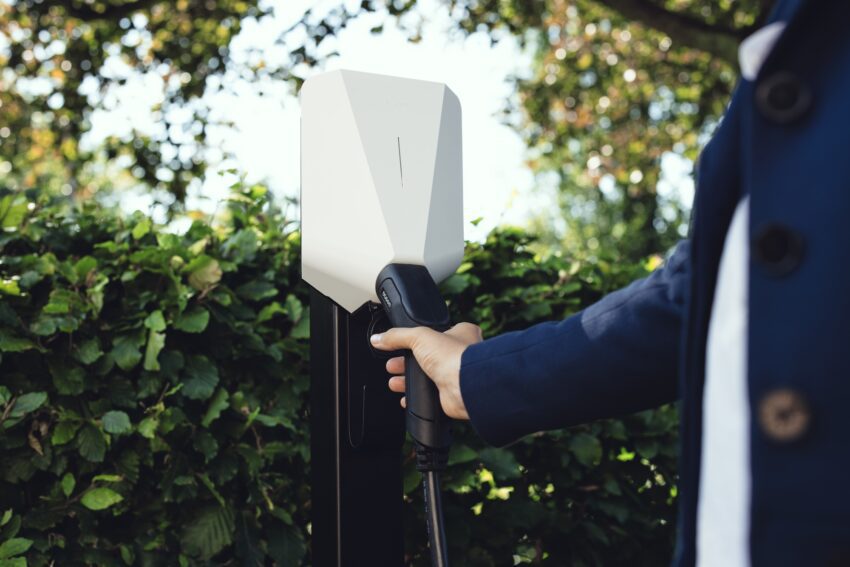
Public vs Private EV Charging: What’s Right for You?
As electric vehicles continue to surge in popularity, one of the most common questions among new and prospective EV drivers is: should I rely on public charging stations or install a private EV charger at home or work?
While the UK’s public charging infrastructure is expanding rapidly — with over 61,000 public chargers now available nationwide (Zap-Map, July 2025) — not all EV drivers find the network convenient or reliable enough for everyday use. Private charging, on the other hand, offers greater flexibility and long-term savings, especially for homeowners and businesses with off-street parking.
So, which option is right for you? Here’s a closer look at the benefits and trade-offs of both.
The Pros and Cons of Public EV Charging
There’s no denying that the public charging network is improving. Rapid charging hubs like those operated by GRIDSERVE, InstaVolt, and bp pulse are transforming long-distance travel, and the government has committed to increasing the availability of ultra-rapid chargers on motorways and A-roads by 2035.
However, for everyday use, the public network can still be inconsistent. A 2024 RAC report found that one in four EV drivers had encountered out-of-service chargers, and around 18% reported long queues during peak times.
For city dwellers without driveways, public charging remains essential. But it comes with limitations — unpredictable availability, time constraints, and typically higher charging costs compared to off-peak home tariffs.
Why More Drivers Are Turning to Private Charging
Private EV chargers offer unmatched convenience. Whether at home or the workplace, they allow you to charge when it suits you, take advantage of lower night-time electricity rates, and avoid public queues altogether.
We spoke with Jamie Parry, Director of Assured Electricians Swansea, a company specialising in EV charger installations across South Wales. He shared his view on why so many drivers and businesses are moving toward private charging:
“We’re seeing a huge shift in mindset locally. More people are realising that EV ownership becomes significantly easier when you have control over when and where you charge.
At Assured Electricians Swansea, we install EV chargers across the city for both residential and commercial customers. For homeowners, it’s often about convenience and cost — plugging in overnight and waking up to a full battery, usually at a much lower cost than using rapid chargers.
For businesses, we’re seeing real momentum. Commercial installations support company fleets, improve staff satisfaction, and show customers you’re thinking sustainably. In both cases, it’s about futureproofing. With the 2035 ICE ban approaching, having reliable on-site charging is becoming less of a luxury and more of a necessity.”
Installing a Home Charger: What to Expect
If you own your property and have off-street parking, installing a home charger is usually straightforward. Most EV owners opt for a 7kW wall-mounted charger, which delivers roughly 30 miles of range per hour and works with all Type 2-compatible vehicles.
Costs typically range from £800 to £1,200, including installation, although smart charger features (like solar integration or load balancing) can increase this.
Smart chargers can also sync with apps, monitor usage, and schedule charging during off-peak hours, offering potential savings of up to 50% on energy bills.
Business & Commercial Charging: An Investment with ROI
For workplaces, the benefits of EV charging are more strategic. Commercial installations can accommodate multiple vehicles, offer staff or visitor access, and often integrate with smart energy management systems.
There are also government incentives available. The Workplace Charging Scheme (WCS), administered by the Office for Zero Emission Vehicles (OZEV), currently offers up to £350 per socket for up to 40 sockets per business — a potential saving of £14,000 on infrastructure costs (GOV.UK, 2025).
Workplace charging can also play a role in meeting sustainability targets and lowering fleet fuel costs. Businesses with electric company cars may also benefit from reduced Benefit-in-Kind (BiK) tax, currently set at just 2% for EVs (HMRC).
Public vs Private: What’s Best for You?
There’s no one-size-fits-all solution — the best choice depends on your living situation, driving habits, and access to charging.
Public charging may be the better fit if:
- You don’t have access to off-street parking.
- You drive infrequently and live near reliable chargers.
- You regularly travel long distances and need rapid top-ups.
Private charging is ideal if:
- You want full control over charging times and costs.
- You drive daily or own multiple EVs.
- You run a business with a fleet or staff parking.
- You’re planning to switch to solar or already have it.
Final Thoughts
Public charging is an essential part of the UK’s EV infrastructure — but it’s not without limitations. For those who can install a private charger, the benefits in convenience, cost, and peace of mind are undeniable.
As Jamie Parry rightly put it, the move to private charging isn’t just about comfort — it’s about futureproofing your lifestyle or business for the electric age.